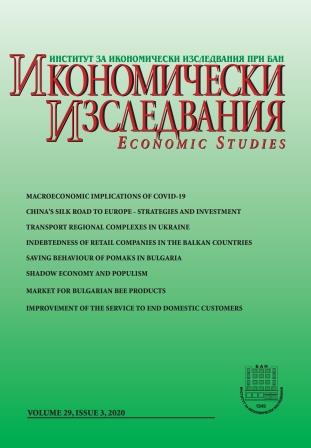Shadow Economy and Populism – Risk and Uncertainty Factors for Establishing Low-Carbon Economy of Balkan Countries (Case Study for Bulgaria)
Shadow Economy and Populism – Risk and Uncertainty Factors for Establishing Low-Carbon Economy of Balkan Countries (Case Study for Bulgaria)
Author(s): Nina Nikolova, Shteryo NozharovSubject(s): Economy, National Economy, Energy and Environmental Studies
Published by: Институт за икономически изследвания при Българска академия на науките
Keywords: Climate change; low-carbon economy; risk and uncertainty
Summary/Abstract: The main purpose of the current publication is to formulate a scenario model for the analysis of the opportunities for low-carbon economy establishment in the countries with transition economies. The model studies risk factors such as shadow economy level and populism based on the implementation and development of Balkan countries’ economic policy and at the same time shows future climate changes tendencies and uncertainties of climate models. A transdisciplinary approach is implemented in the study. Climate change perception and understanding about the low-carbon economy are examined through the public opinion and analysis of mass-media publications. The results of the research are important in order to clarify the multicultural divergences as a factor for risk and uncertainty in the implementation process of the policy for climate change. In this way, geographical aspects of risk and uncertainty, which are not only related to the economic development of the relevant countries, could be brought out.
Journal: Икономически изследвания
- Issue Year: 2020
- Issue No: 3
- Page Range: 121-144
- Page Count: 24
- Language: English

